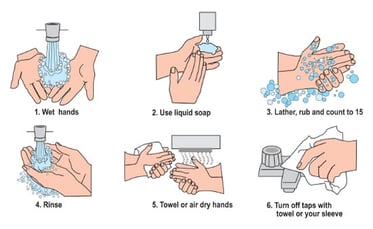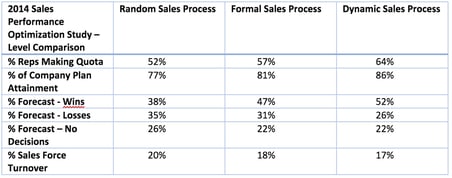Over the years, maybe as a result of age, maybe due to my Peace Corps years living in Tanzania, or just maybe as a result of all of the stories about antibiotic superbugs in hospitals, I've been pretty careful about washing my hands. I mean, not compulsive-careful, but certainly I've become "highly aware" of the problem, and I never pass up a good buy at Home Depot for antibacterial soap or disinfecting Clorox wipes. Just good healthcare basics, plus I see, up close and personal every day, the debilitating affects of contracting hospital superbugs in my wife's Rheumatoid Arthritis, MRSA and auto-immune diseases which occurred as the result of a hospital-borne infection following a surgery 20 years ago.
 In the United States, the Centers for Disease Control and Prevention estimates roughly 1.7 million hospital-associated infections, from all types of microorganisms, including bacteria and fungi combined, cause or contribute to 99,000 deaths each year. In other studies, I've seen that number "as low as 75,000", but, quite frankly any number over one death should be regarded as totally unacceptable. The simplicity of that statement about a very complex problem is that it's been documented time and time again, that following the basics of requiring the washing of one's hands substantially reduces hospital-borne infections and their corresponding high death rates.
In the United States, the Centers for Disease Control and Prevention estimates roughly 1.7 million hospital-associated infections, from all types of microorganisms, including bacteria and fungi combined, cause or contribute to 99,000 deaths each year. In other studies, I've seen that number "as low as 75,000", but, quite frankly any number over one death should be regarded as totally unacceptable. The simplicity of that statement about a very complex problem is that it's been documented time and time again, that following the basics of requiring the washing of one's hands substantially reduces hospital-borne infections and their corresponding high death rates.
"The basics" are, in fact, just that...basic
...and those basics come down to preventative basic statements such as THIS...
Even so, it’s a good idea for patients to be vigilant during their next visit to a nearby hospital, long-term care facility, or even a family practice clinic. The cleanliness of the facility is especially worth noting, with regular disinfecting of medical supplies and surfaces being the key to the long-tern health of patients. Furthermore, those patients who are admitted for long-term care in a hospital or other facility should perform due diligence to make sure that they, and their nurses, are keeping everything clean and free of disease. With great care, great cleanliness, and long-term vigilance, these common diseases can be avoided altogether.
...and a recent Fox News commentary...
The CDC estimates that on any given day, 1 in 25 patients have an infection that they picked up in the hospital. Officials have been pushing hospitals to do a better job keeping infections in check, with the government's Medicare program cutting payments to the worst hospitals. The agency's director, Dr. Tom Frieden, called the long-term statistic especially "chilling", and went on to say that "Doctors are the key to stamping out superbugs,"
.........................
The bottom line of all of this is that as car deaths have been sharply reduced now for a decade due to improved technologies and a strict adherence to seat belts, and as violent crime rates have plummeted by 30%-40% due to increased use of data analytics and cameras in most major U.S. cities, except Chicago, the rate of annual hospital deaths related to infections is "only marginally better" and continues to hover between 75,000 and 100,000. That's U.S. deaths per year! Imagine the outrage if those stats were reported due to an accident or something worse
15 years ago, the answers to the problem were...
- Update every surgical checklist to increase the washing of hands. Basic, but they needed checklists
- Have nurses enforce the discipline with docs. Not so basic.
- Place antibacterial cleansing agents and soaps everywhere in the hospital. Not so basic back then.
- Visibly post daily stats on infections and readmissions in every surgical unit, CCU & ICU. Brand new
- Cut Medicare payments to non-compliant hospitals. Brand new
Today, in a world of social media and instant search, enhanced guidance comes directly from patients' posted social media comments and over reviews on 100 plus private and public rating systems for both docs and hospitals. But, all of this may not be enough, so....
...JUST Maybe The Basics Need to be Updated
The basics of hand washing still count, of course, but perhaps since the stats are only marginally improving, the way we wash our hands isn't good enough. In a WSJ article on Tuesday this week, that's exactly the recommendation: we are not washing our hands correctly, and there's a better way to do this.
Ok, so enough about germs, infections, superbugs & cleanliness
...but, I write about this important topic since it's a huge problem, and it can be significantly improved by...
- ...adhering to the basics, and, when "the basics" don't work ...
- ...update the basics to new ways of doing things
In last week's blog I noted that in my sampling of 100+ professional salespeople, the overall Q1 Quota results for B2B sales were, once again, far off the mark. Although the results in the graphic below are from 2014, I am sure that when the overall Q1 data is published next month, the results will be similar. In my own surveys over the last two weeks, the results, on average, were approximately 65%, with individual ranges as low as 22% and only a few at or above 100%.
I've been attending quite a few QBR's this and last week, and I observed...
- Good, experienced and trained salespeople who really want to improve
- Most companies have either an informal or formal sales process that define the basics
- All companies have a CRM...but overall adherence is "fair" to "good" with only 10% at "exceptional"
- Where basic sales processes and the use of basic tools were formal and CRM usage was religious, the results were significantly improved over those companies where there were "kinda" sales processes and CRM usage and its discipline were casual and not enforced.
the results of adhearing to the basics of sales processes & tools:
 April is the month when every one of us, as both individual sales professionals and as managers, needs to re-examine our basic sales tools, and most probably adapt to either doing the same thing differently or identifying newer tools and better training.
April is the month when every one of us, as both individual sales professionals and as managers, needs to re-examine our basic sales tools, and most probably adapt to either doing the same thing differently or identifying newer tools and better training.
A perfect example of why we need to do this is the table above with data supplied by the absolutely superb data guys at CSO Insights. In our own research with prospects, we have unfortunately found that most B2B companies live in the world of random sales processes, or, as we refer to them "Kindas" which is the response that we too often hear from most salespeople, even in well run companies.
- Question: "Do you have a sales process?" Answer: "Kinda"
- Question: "Do you use your CRM tools in your sales process?" Answer: "Kinda"
And yet when you look at the percentage increases on quota attainment of approximately 10%+ in the movement from "Random" to "Formal" to "Dynamic", why would anyone not want to have a disciplined and consistently refreshed sales process integrated with the correct tools which have been refreshed in best practice QBRs every quarter? Makes absolutely no sense to do otherwise!
Right People + Right Process + Right Tools + Right Training = Consistent Sales Success
So, here we are at the beginning of the most important quarter of the year, and just as healthcare professionals are changing their approach to the basics of washing hands, it's time for all of us in the profession of Sales, to take a hard look at our own Sales Basics and figure out what we need to do to improve. From the data, it appears that whatever we're doing, it can be done better!
Questions for your next Sales Meeting:
- Are the basics of your sales process, steps, tools and integrated technologies being used as everyone on the team all agreed that they would be? If not, why is that?
- Do you need more training? If that's the case, what about setting up two or three one half day boot camps during this quarter? No time? What about Saturday mornings?
- Do you need to update the basic tools that you've been using? Maybe the basics of how you've been doing things just aren't good enough anymore? The world has dramatically changed, both your prospects and your competition are much more knowledgeable, and just maybe you and your team have not really adapted with better systems and improved tools that actually bring real value to your customers?
IT'S TIME TO TUNE UP YOUR OWN BUSINESS & MARKETING PLANS
 Also, since you've now deep into Q2, you just may want to put aside a day during the next two weeks to refine and update your entire 2016 Business Plan, or at least your 2016 Sales and Marketing Plans. To get you started, click here and receive a downloaded copy of our Writing the Winning Business Plan, 2016 edition.
Also, since you've now deep into Q2, you just may want to put aside a day during the next two weeks to refine and update your entire 2016 Business Plan, or at least your 2016 Sales and Marketing Plans. To get you started, click here and receive a downloaded copy of our Writing the Winning Business Plan, 2016 edition.
Another opportunity looking ahead to the rest of the year is to do the same type of "relook" at the basics of your 2016 Marketing Plan after reviewing our ebook on "How to Write a Marketing Plan". This consists of mostly solid basics and tactical structure stuff...which just might be the perfect thing to do right now before you dive too deeply into Q2.
...and, of course, if you just want to talk through some of where you are right now and use us as a confidential sounding board...or do a short Whiteboarding Session with any of us, just email me, and we will work out a convenient schedule.
Good Selling! Pay attention to the Basics...
Derby Management...for 25 years
-Sales & Marketing Productivity Experts
-Business & Strategy Planning Specialists
-Senior Management Coaches for CEOs & VPs
Box 171322, Boston, MA 02117
Jack's Cell: 617-504-4222


